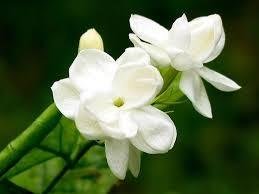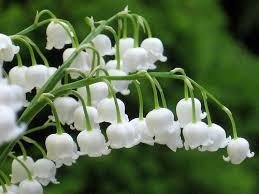Jasmine is an ornamental flower plant of upright trunk that live chronic. Jasmine is a genus of shrubs and vines in the olive family (Oleaceae). It consists of about 200 species of native tropical and warm tropical plants from Eurasia, Australasia and Oceania. Jasmine is widely cultivated for their distinctive floral scent. In Indonesia, one of the jasmine species is made as "puspa bangsa" or national symbol of jasmine white (Jasminum sambac), because this flower symbolizes purity and purity, and is associated with various traditions from many tribes in this country. This flower is a must bridal hair decoration in the marriage ceremony of various tribes in Indonesia, especially the tribe of Java and Sunda.*


Jasmine flowers are useful for sowing flowers, perfumes, cosmetics, perfumes, pharmaceuticals, flower arrangements and mix or tea fragrances, such as popular jasmine tea in Indonesia.
Flowers and leaves of some jasmine species are used to reduce or stop the release of mother's milk. in the shape of a crushed flower or a poultice stuck on a breast.
The poultice leaves of several types of jasmine are used to treat ulcers and skin diseases. These leaves are also used as a gargle to treat sprue and swelling of the gums. Water immersion flowers that have been used as a refreshing night to wash your face.
Root extract of several types of jasmine is used as a fever-lowering. Decoction of jasmine root or marinade flower used to overcome inflammation of peparu, bronchitis, and also asthma. Grounded roots are used as poultices to heal sprains or broken bones. Tincture (extract in alcohol) J. sambac root has strong properties as a sedative (sedativa), anesthetic, and wound healer.
Downvoting a post can decrease pending rewards and make it less visible. Common reasons:
Submit